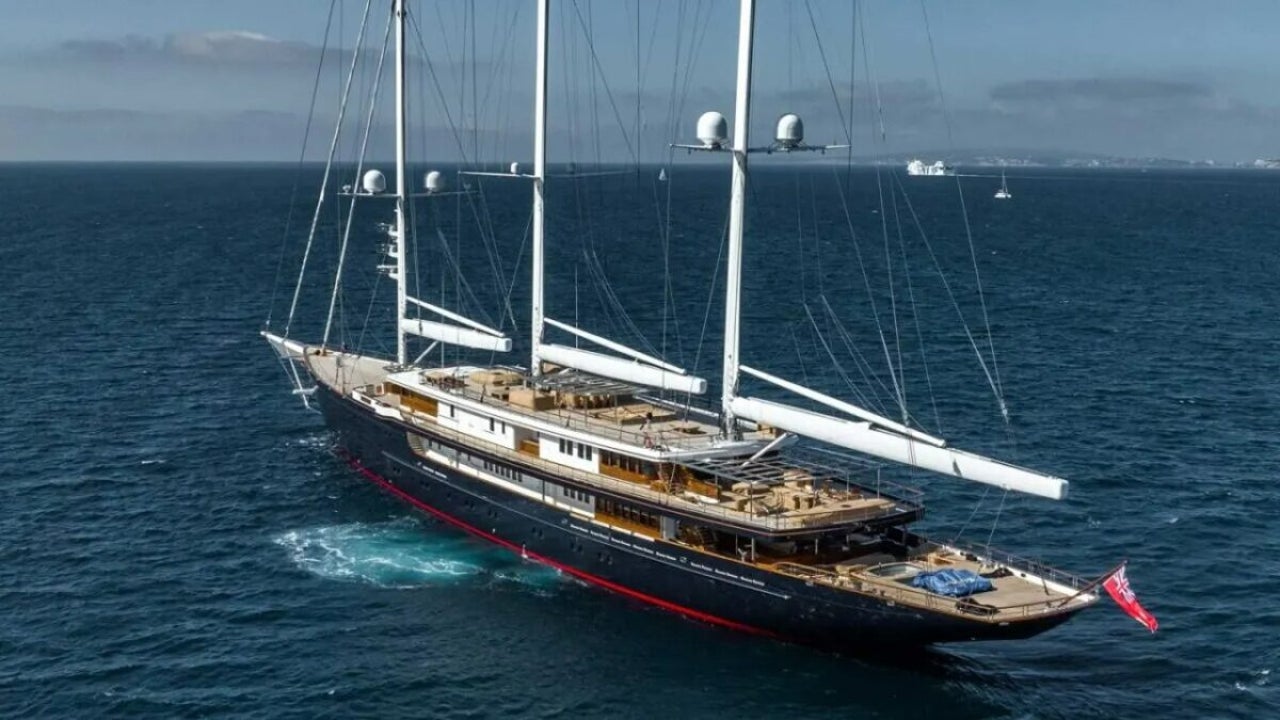News
When your yacht is so big that it doesn’t fit in ports: problems of “environmentalist” Jeff Bezos
One loses the desire to recycle and take the bus.

- December 4, 2023
- Updated: March 7, 2024 at 1:37 PM
Many companies boast about being eco-friendly or pursuing the goal of zero emissions by 2050. The thing is, that year is very distant for some. Or rather, for some individuals, because today we’re talking about a gentleman who leads a company, not his company.
Surely you all know Jeff Bezos, the founder and CEO of Amazon for over 20 years. The man who was the world’s richest for some years (now third) has peculiar tastes: traveling to space, owning a boat larger than a football stadium, building a clock that outlasts humanity…
When someone has a lot of money, they tend to do silly things, or at least that’s how it seems to us mere mortals who observe with a certain distance and embarrassment some whims and attitudes of billionaires. Today, we’re talking about his boat.
A boat so big it doesn’t fit in ports
Amazon’s founder, Jeff Bezos, owns an incredibly colossal superyacht, so huge that it has to dock next to some darn tankers in Florida.
As reported by the Luxury Launches yacht blog, Bezos’s super-schooner, named Koru after the Maori word meaning “coil,” measures an astounding 416 feet in length (126 meters), which makes it 16 feet too long to dock in the largest yacht harbor in southern Florida, Port Everglades.
Instead, it has been docked among 600-foot tankers (182 meters), because that’s perfectly normal.
Reports suggest that the Koru cost the billionaire $500 million and $137,000 a day to operate. But if you’re wealthy enough to buy The Washington Post, who’s to say you can’t purchase one of the most expensive yachts in the world and pay much more than the average American’s annual salary to ensure it runs every day?
You go on public transportation, while Bezos travels on his boat
With nearly twice the length of an Airbus A380, the Koru isn’t just a gigantic waste of money but also, as reported by the New York Post citing a new analysis from Indiana University, a significant polluter.
Using publicly available data, Beatriz Barros, a doctoral candidate in anthropology at Indiana University, along with Richard Wilk, an anthropologist who has long sounded the alarm about the billionaire pollution problem, calculated that the Koru produces an outrageous 7,154 tons of greenhouse gases per year.
While it’s not entirely shocking that the ultra-rich are super polluters, these figures contrast sharply with Bezos’s supposed commitment to turning back the clock on climate change, as evidenced by his pledge to spend $10 billion by the end of the decade to combat its worst effects.
In an interview with The Guardian regarding the research, Wilk explained that luxury sailboats like the Koru are among the most atrocious ways in which billionaires contribute to pollution.
“The emissions from superyachts are way beyond anything else,” stated the Indiana anthropologist. “They have to have a crew and constant maintenance, even when they’re docked. Then there are the onboard helicopters, jet skis, energy-consuming luxury items like pools, Jacuzzis, private submarines, and tenders, all needing power, air conditioning, sophisticated electronic gadgets.”
“It’s like having a hotel running on the water all the time,” Wilk continued.
While the media breathlessly reports the debut of the Koru, the superyacht, too large to dock under normal circumstances, will continue emitting carbon into the atmosphere at a much higher rate than that of the average citizen.
Journalist specialized in technology, entertainment and video games. Writing about what I'm passionate about (gadgets, games and movies) allows me to stay sane and wake up with a smile on my face when the alarm clock goes off. PS: this is not true 100% of the time.
Latest from Chema Carvajal Sarabia
- We already know how much the 2025 iPhone SE will cost: finally a cheap iPhone
- These are the 6 most anticipated action movies of 2025
- These are the 7 biggest milestones in the aerospace industry so far this millennium: Review 24 years of rockets with us
- A group of flat-earthers take a $35,000 trip… to discover that the Earth is round
You may also like

Yes, we can measure a person just by taking a photo of them
Read more

Final Fantasy VII Rebirth has performed well, but now at Square they only trust in multiplatforms
Read more

Originally, Kingdom Hearts was so difficult that at Square they compared it to a Takeshi Kitano game
Read more

You didn't know it, but the world of chess just suffered because of some cowboys
Read more

WhatsApp collaborates with Google so you can find out the origin of any image sent to you
Read more

Steam breaks its own record for games published again
Read more